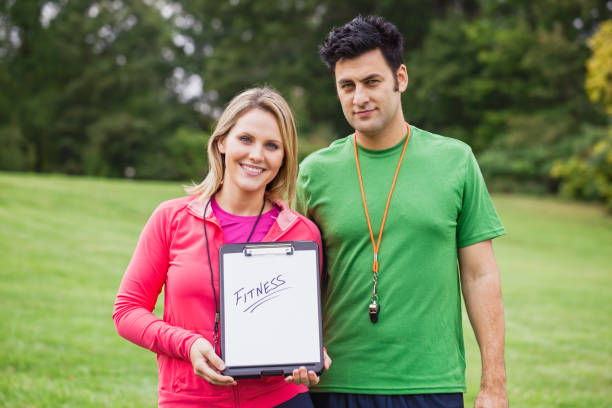So, you’ve decided to turn your passion for fitness into a career. That’s a fantastic choice! The fitness industry is booming, and more people than ever are seeking guidance to improve their health. But before you can start helping others, you need to get the right credentials. A top-tier fitness certification is more than a piece of paper. It’s your key to credibility. It gives you a deeper understanding of the human body and opens doors to a successful career.
But here’s the thing: with so many certifications out there, it can feel like a jungle. Which one is the right fit for you? Which ones are respected by gyms and clients? And which ones will give you the best chance to succeed in 2025 and beyond?
This isn’t just a list; it’s a guide to help you make one of the most important decisions of your career. We’ll cover the top certifications. We’ll look at what makes each one special. You’ll gain the knowledge to pick the best path for your goals.
Why a Top-Tier Certification Matters More Than Ever
Contents
- 1 Why a Top-Tier Certification Matters More Than Ever
- 2 The Top 10 Fitness Certifications for 2025: A Detailed Breakdown
- 2.1 1. NASM (National Academy of Sports Medicine) – The Go-To for Corrective Exercise
- 2.2 2. ACE (American Council on Exercise) – The Behavioral Change Experts
- 2.3 3. ISSA (International Sports Sciences Association) – The Online and International Powerhouse
- 2.4 4. ACSM (American College of Sports Medicine) – The Clinical and Scientific Standard
- 2.5 5. NSCA (National Strength and Conditioning Association) – The Athlete’s Choice
- 3 Certifications That Offer Niche Specializations
- 4 How to Choose the Right Certification for You
- 5 FAQs: Your Most Common Questions Answered
In the past, you might have been able to get by with a less-known certification, or even just pure enthusiasm. Today, that’s not the case. The fitness industry is highly competitive, and clients and employers are smarter than ever. They want to work with professionals who have a solid, scientific foundation.
A high-quality certification does a few important things for you:
-
It builds trust. Clients trust your expertise when they see you’re certified by a reputable organization.
-
It gives you the fundamentals. You’ll learn anatomy, physiology, exercise techniques, and injury prevention. It’s all backed by scientific research.
-
It opens doors. Many gyms and health clubs need you to have a certification from a recognized, accredited organization before you can apply for a job.
-
It increases your earning potential. Certified pros, especially those with special credentials, can charge more and get more clients.
Look for the key word: accreditation. Focus on groups like the National Commission for Certifying Agencies (NCCA). NCCA-accreditation is the gold standard in the fitness world. It means the program has met rigorous standards for fairness, quality, and effectiveness. Think of it as the ultimate seal of approval.
The Top 10 Fitness Certifications for 2025: A Detailed Breakdown
We ranked these certifications using key factors:
-
Industry reputation
-
Job market recognition
-
Curriculum quality
-
Overall career value
1. NASM (National Academy of Sports Medicine) – The Go-To for Corrective Exercise
If you ask a gym manager which certification they prefer, there’s a good chance they’ll say NASM. It’s arguably the most well-known and widely respected certification in the United States. NASM is known for its Optimum Performance Training (OPT) model. This model is a systematic way to train, focusing on each client’s unique needs and goals.
-
Who it’s for: NASM is perfect for anyone who wants a scientific, structured approach to training. Its focus on corrective exercise and injury prevention makes it ideal for a variety of clients. This includes everyone from beginners to those recovering from injuries.
-
Key Focus Areas: Anatomy, biomechanics, movement assessments, and program design using the OPT model.
-
What Makes it Stand Out: The OPT model is a clear, step-by-step system that makes it easy to design effective and safe programs. Many gyms also have a preference for NASM-certified trainers.
-
**Cost and Requirements:** The cost varies by study package. It usually ranges from a few hundred to over a thousand dollars. You’ll need a high school diploma and a current CPR/AED certification to take the exam.
2. ACE (American Council on Exercise) – The Behavioral Change Experts
ACE is a non-profit that focuses on behavioral coaching. It helps clients make lasting, healthy lifestyle changes. Their curriculum focuses on more than just sets and reps. It also explores the psychology of why people succeed or fail in reaching their goals.
-
Who it’s for: ACE is perfect for strong communicators. It’s for those who want to help others reach various goals, not just weightlifting. It’s also perfect for trainers who want to work with general fitness clients in a community or corporate wellness setting.
-
Key Focus Areas: Client-centered coaching, motivational interviewing, and lifestyle change strategies.
-
What Makes it Stand Out: The “ACE Mover Method” is a special coaching approach. It helps you create strong, trusting relationships with your clients. ACE is also a highly respected name in the health industry, not just in fitness.
-
Cost and Requirements: The cost is generally competitive and often a little more affordable than NASM. You’ll need a high school diploma and a current CPR/AED certification.
3. ISSA (International Sports Sciences Association) – The Online and International Powerhouse
ISSA has built a reputation for offering a very flexible and comprehensive online learning experience. Their programs are designed to be self-paced, which is perfect for someone who is already working or going to school. They’re also one of the most recognized certifications internationally, so if you plan to work outside the U.S., ISSA is a solid choice.
-
Who it’s for: ISSA is ideal for self-starters who want a flexible study schedule. It’s also great for trainers who want to work with a wide variety of clients, as their curriculum is broad and covers many different areas of fitness.
-
Key Focus Areas:
-
Personal training basics
-
Sports science
-
A complete look at exercise programming
-
-
What Makes it Stand Out: ISSA has an open-book final exam. It also often includes a free nutrition certification with its packages. This adds a lot of value. They also offer a job guarantee, which gives you peace of mind.
-
Cost and Requirements: Prices are often bundled and can be very competitive. You’ll need a high school diploma and a current CPR/AED certification to get certified.
4. ACSM (American College of Sports Medicine) – The Clinical and Scientific Standard
ACSM is often referred to as the “scientific gold standard” of the fitness world. Their certification is heavily rooted in academic research and exercise physiology. It’s one of the toughest certifications out there. People respect it a lot in clinical and medical fields because it’s so science-focused.
-
Who it’s for: ACSM is great for those wanting to help clients with health issues, such as diabetes or heart disease. It’s also a great fit for someone with a background in exercise science or kinesiology.
-
Key Focus Areas:
-
Clinical exercise physiology
-
Health screening
-
Exercise prescription for special populations
-
-
What Makes it Stand Out: The sheer depth of the scientific information and the high regard it holds within the medical community. If you plan to work in a physical therapy clinic or a hospital, an ACSM certification is a huge advantage.
-
Cost and Requirements: The cost of the exam and study materials can be high, and the exam is known to be very difficult. You’ll need a high school diploma and a current CPR/AED certification.
5. NSCA (National Strength and Conditioning Association) – The Athlete’s Choice
The NSCA is a globally recognized authority on strength and conditioning. They have a general Certified Personal Trainer (CPT) certification. However, their most recognized credential is the Certified Strength and Conditioning Specialist (CSCS). This certification is the gold standard for anyone who wants to work with athletes, from high school to professional levels.
-
Who it’s for: The NSCA-CSCS is for trainers who want to work with athletes to improve their performance, speed, and power. It’s also for professionals who want to work in collegiate or professional sports.
-
Key Focus Areas:
-
Advanced strength training principles
-
Periodization
-
Sports psychology
-
Coaching elite athletes
-
-
What Makes it Stand Out: It is the most respected certification for a career in athletic performance. However, be aware that to take the CSCS exam, you need to have a bachelor’s degree. The NSCA CPT does not have this requirement.
-
Cost and Requirements: The price can be significant, and the CSCS exam is known to be one of the most difficult in the industry. You must have a bachelor’s degree to take the CSCS exam.
Certifications That Offer Niche Specializations
Core certifications are the foundation of your career. However, a specialization can help you stand out and attract specific clients. These are not always NCCA-accredited but are highly respected in their specific fields.
6. Corrective Exercise Specialist (CES)
Many certifying bodies, including NASM and ACE, offer a Corrective Exercise Specialist certification. This program focuses on helping clients fix muscle imbalances and movement deficiencies that can lead to pain or injury. It’s a great way to add a layer of expertise to your resume and work with a wider range of clients.
7. Certified Nutrition Coach (CNC)
Clients often look to their trainers for nutrition advice. Getting a nutrition certification from NASM, ISSA, or Precision Nutrition lets you give science-based advice on diet and wellness. This can be a huge value-add for your clients and a great way to increase your income.
8. Group Fitness Instructor (GFI)
If you love leading classes and motivating a crowd, a Group Fitness Instructor certification is perfect for you. Certifications from ACE, NASM, and AFAA teach you to choreograph classes. They also teach you to lead large groups and inspire people in a high-energy setting.
9. Senior Fitness Specialist
With an aging population, the demand for trainers who can work with older adults is growing rapidly. A certification from a program like NASM’s Senior Fitness Specialist or ISSA’s Senior Fitness Trainer helps you design safe and effective programs for seniors. These programs focus on balance, mobility, and strength to support a high quality of life.
10. Youth Fitness Specialist
Working with kids and teens is a rewarding and important field. A certification in youth fitness covers age-appropriate exercises and injury prevention for growing bodies. It also shows you how to make fitness fun and engaging for kids. Both ISSA and NASM offer well-regarded youth fitness specializations.
How to Choose the Right Certification for You
Picking a certification isn’t about finding the “best” one overall. It’s about finding the best one for your career goals. Here are a few questions to ask yourself:
-
Who do you want to train? Do you want to work with general clients, athletes, or older adults? Your answer will point you toward a specific certification. For example, if you want to work with athletes, NSCA-CSCS might be a better fit than ACE.
-
What’s your learning style? Are you a self-starter who prefers to study on your own? Then a flexible online program like ISSA could be perfect. Do you thrive with structured, scientific information? ACSM might be a great choice.
-
What’s your budget? Certification costs can range widely. Make sure you look at the full cost, including study materials, the exam fee, and any extra costs for things like CPR certification. Some organizations offer payment plans and bundle deals.
-
Where do you plan to work? Check with the gyms in your area. Most gyms in the U.S. will have a list of preferred certifications, and they usually include the big names like NASM and ACE. Making sure you meet their requirements can save you a lot of trouble later on.
FAQs: Your Most Common Questions Answered
Q1: Do I need a college degree to become a personal trainer?
No, for most entry-level personal trainer certifications, you do not need a college degree. A high school diploma or equivalent is generally all that is required. However, for a few specialized certifications, like the NSCA-CSCS, a bachelor’s degree is a prerequisite.
Q2: What is NCCA accreditation and why is it important?
NCCA stands for the National Commission for Certifying Agencies. It’s a third-party organization that reviews and accredits professional certification programs. When a certification is NCCA-accredited, it means it meets the highest standards for quality, fairness, and reliability. Most major gyms and employers prefer trainers with an NCCA-accredited certification.
Q3: How long does it take to get certified?
The time it takes to get certified depends on your chosen program and how much you can study each week. Most people take anywhere from 3 to 6 months to prepare for and pass their exam. Programs are self-paced, so you can go as fast or as slow as you need to.
Q4: How much does a personal trainer certification cost?
The total cost can vary greatly. A single certification program, including study materials and the exam, can range from around $500 to over $1,500. Some organizations provide pricier bundles. These often include several certifications or extra study tools. It’s a good idea to look for special offers and sales, which happen frequently.
Q5: How do I maintain my certification?
Certifications are not for life. You will need to recertify every 1 to 3 years, depending on the organization. To recertify, you typically need to earn a certain number of continuing education credits (CECs or CEUs) and pay a recertification fee. This process ensures that you stay up-to-date with the latest science and trends in the fitness industry.





